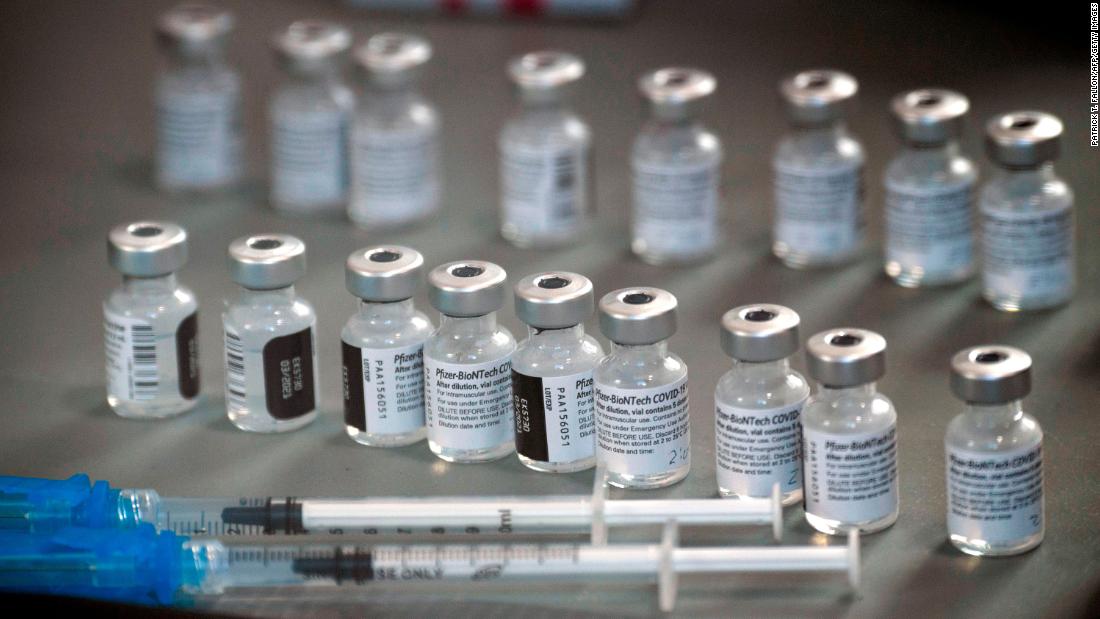
With stretched health workers responding to record numbers of coronavirus hospitalizations, jurisdictions are struggling to find extra hands with the skills to help shoot in the arms.
A report published in December by the Duke-Margolis Center for Health Policy and National Governors Association cited 20 states considering recruiting nontraditional health care providers, including college students, dentists, veterinarians and paramedics.
On Monday, the California Department of Consumer Affairs approved an emergency exemption allowing dentists to administer Covid-19 vaccines. The move came when California Governor Gavin Newsom announced the state’s plans to aggressively accelerate the rate of vaccination.
The American Dental Association says dentists are allowed to give the vaccine in multiple states, including Oregon, where the first dentist in the US to administer a Covid-19 vaccine did so last month.
“Dentists are already trained to give injections in objectively more complex areas of the mouth that usually have gag reflexes, great blood vessels, nerves and a moving tongue,” the California Dental Association said in a statement.
Some health systems are tapping into a source of newly trained students to assist in the vaccination effort.
“It will be a team of really smart and educated young people who will become our immunizers,” Susan Mashni, vice president and chief pharmacy officer for the Mount Sinai Health System in New York City, said in December.
The University of Alabama at Birmingham typically recruits nursing students to assist with annual flu vaccinations. They also attracted medical and dental students for the roll-out of the Covid-19 vaccine.
“We have used some atypical vaccinators because we want to prioritize keeping our licensed nurses at the bedside,” said Dr. Sarah Nafziger, a professor of emergency medicine at the University of Alabama in Birmingham. “While we roll out the vaccine, we’re dealing with a patient bump at the same time.”
A “beautiful thing to watch”
The university has even recruited public health students, who can’t give shots but do have the knowledge to help run vaccination sites.
“There is a lot of logistics involved when you have a vaccine center that processes more than 1,000 people a day, so it’s really a community effort here on our campus,” said Nafziger. “It’s beautiful to watch.”
Nafziger said that most student vaccines at UAB are not paid. Like many people who administer vaccines across the country, they outsource volunteer work.
New Jersey is calling on its citizens to join the state’s Medical Reserve Corps, a network of health care volunteers dedicated to vaccinators. In particular, the state is looking for retired health workers who have the skills to administer vaccines and who do not actively go to patients.
“It’s a lot of retired doctors who are standing up to act as vaccinators,” Judy Persichelli, the New Jersey state commissioner, said at a news conference Wednesday.
There is some red tape when recruiting vaccinators. They need to be trained – a process that takes about two hours – and not everyone with the skills to administer Covid-19 vaccines is qualified to do so.
Dr. William Reynolds, president of the American Optometric Association, says optometrists are an untapped resource in the vaccination effort.
The association says 19 states allow optometrists to administer drugs by injection – and in California, they can give flu and shingles vaccines – but are not authorized to give the Covid-19 vaccine specifically.
Reynolds noted that optometrists are widely distributed and ready to step in to help smaller and rural communities that may need assistance.
“We are in smaller communities, as well as in cities,” he said. “Ninety-nine percent of Americans live in a county with an optometrist. Ninety percent of the Medicare population lives within 15 minutes’ drive of an optometrist.”
He said there are few financial incentives for optometrists to assist in the effort, but getting the population vaccinated as soon as possible will help their offices – and the nation – return to normal.
“We want to be part of the solution,” said Reynolds.